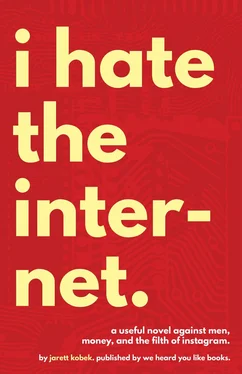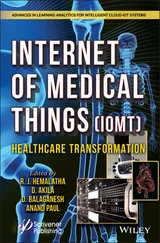A few months after the initial investment, Erik Willems helped Bromato stage another round of funding. The equity being sold during this round had a higher cost than the equity purchased by MoriaMordor.
When another fund bought in at $10,000,000 for a 10 % equity stake, the company’s valuation increased to $100,000,000.
The mutual fund’s original stake went from a value of $5,000,000 to $20,000,000.
On paper, he had produced a significant return on the initial investment. He was making money for Dennis and Dennis’s father.
The likely fate of Bromato was total failure. It would survive for some time, but as with most venture backed companies, it too would disappear.
The dominant model of investing in the San Francisco Bay Area was the business of investing in companies that failed.
To get to the point where it could be acquired by a bigger company or offer its stock on a public exchange, both of which could transform MoriaMordor’s initial investment into a ridiculous amount of money for Dennis, Bromato had to mimic the outward edifices of a functional business.
It would have to attract workers.
These would be either: (1) Young ignorants who’d heard of a gold rush out West. (2) Tech industry veterans with actual experience at other companies.
The big catches, the ones with skills and experience, would earn salaries somewhere in the six figures. A few would get signing bonuses.
The small fries, the interns, and the young ignorants would be sucked into miniscule salaries and deferred compensation. This deferred compensation would come with promises of vested equity.
All of these hires were expendable.
Everyone was expendable.
The people of San Francisco. The entry level workers. The experienced stars. The co-founders. The managing partners.
Everything existed for the sole purpose of making Dennis and his father and their friends and rivals richer. They wanted their capital to produce more capital without paying the costs associated with labor.
They had crashed the global economy before. They would crash it again.
But they themselves would never suffer.
There were hundreds and hundreds of Bromatos all over San Francisco. Each attracted new workers and each rented office space.
Because Bromato had been given its money by Erik Williams in an investment scheme, and because there was no expectation that Bromato earn a profit, Bromato could sign bad leases at egregious price.
Businesses that actually made money, that actually had a profit, were losing their leases to businesses like Bromato. Businesses that made actual money were generally run by responsible people who couldn’t sign bad leases at egregious prices.
These business were referred to as lifestyle businesses. They allowed their owners to maintain their lifestyle. This was a bad thing.
The new workers had a detrimental effect on the real estate market. San Francisco was seven miles wide by seven miles long. Housing was limited.
People with salaries in the six figures could afford to pay $3500 for a 1BR apartment in a traditionally working class Latino neighborhood.
The other employees, the dopes who came West with promises of deferred compensation, would bunch together.
They lived eight people to a 2BR apartment. They paid $5,000 a month in rent. They had two sets of bunkbeds in each room.
The citizens of San Francisco were being victimized by low interest rates.
That was capitalism and it was simply grand, darling.
The video of Adeline in Kevin Killian’s class became public domain. Adeline was making money for the Internet.
The Internet was a wonderful resource for sermons about inequality amongst the 1,000 Americans who cared about contemporary poetry, moral outrage about governmental policy, and arguing that religious figures from previous millennia understood the social conditions of the present.
Adeline used the cupcake and the pastry to explain her situation.
“I’m being victimized,” she said to Baby, “People are separating me from them and taking offense. They think I’m the cupcake and they’re the pastry. Or they think I’m the pastry and they’re the cupcake. The peculiar part is that the vast majority of these people harbor very similar political positions as yours truly. One could argue that I am both the cupcake and the pastry and my accusers are also both the cupcake and the pastry.”
“What are you talking about?” asked Baby over the telephone. “All I know is that I have requests for interviews about your epic rant and you’re rambling about delicious kitchen treats.”
Baby was speaking to Adeline from his Cape Cod home. Cape Cod was a land mass jutting off the coast of Massachusetts that looked like a flexed human arm.
Baby had left New York City after people from Wall Street ran up the rents.
Rent wasn’t his problem. His apartment on 7th Street had been rent controlled. Plus, he could’ve afforded the market rate. His agents were good at selling film options on his books and Baby’s money manager used Baby’s capital to produce more capital.
Trapped Between Jupiter and a Bottle, which Baby titled after an ex-boyfriend’s mishearing of a Bob Dylan lyric, had sold to a eumelaninless film producer and director named Alan Pakula.
Alan Pakula never made Trapped Between Jupiter and a Bottle into a movie, but he had directed All the President’s Men, one of the films featuring an Academy Award winning performance by Jason Robards.
Jason Robards was Adeline’s father’s last patient.
Sometimes it feels like there are only eleven people in the world and that the rest are paste.
Baby didn’t leave New York because of the rent on his own apartment.
He left because all the wonderful queers were chased off Manhattan island. All the beautiful freaks. They were chased away because they had no money. Manhattan had experienced extreme gentrification.
Some moved to Brooklyn. Others left the city.
Baby refused to move to Brooklyn. He was too much of a snob.
He chose Massachusetts because he decided to marry his long term boyfriend, a failed architect named Massimo Colletta.
At the time, Massachusetts was the only place in America where gay people could get married to other gay people of the same gender.
Weirdly, anywhere in America, gay people could marry other gay people of the opposite gender. This tended to defeat the purpose of marriage, a social tradition by which sex is legitimized through shared bank accounts.
Provincetown, where Baby lived, was full of gay people and the pleasantries of gay culture. It was beautiful in the summer and filled up with beautiful homos who expressed their faggitude in the Summer sun. You could go to parties thrown by the film director John Waters, who didn’t have any eumelanin in his epidermis.
The winters were hard but Baby was from Wisconsin. New Englanders complained about the snow, but it wasn’t much compared with Baby’s childhood.
Sometimes, Baby liked looking at Norman Mailer’s house. Norman Mailer was a writer who didn’t have eumelanin in the basale stratum of his epidermis.
Back in the early 1990s, Baby and his friend Regina, who had some eumelanin in her epidermis, were at a party. So was Norman Mailer. Norman Mailer made a leering advance at Regina and called Baby sweetheart. Baby threatened to beat Norman Mailer like a dusty broom.
This incident raised Baby’s profile with New York’s literati.
A few years later, Baby and Adeline crashed a party at Norman Mailer’s apartment in Brooklyn. There was another confrontation. Baby was asked to leave the premises.
When Norman Mailer died in 2007, Baby stopped looking at the house.
Читать дальше












